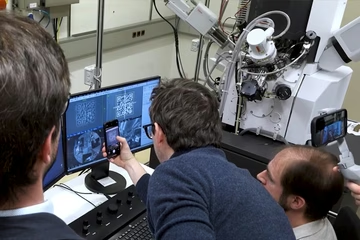Analyst: Bosnia's politicians have no intention to steer the country toward EU

Foreign diplomats are well aware that Bosnia’s politicians have no intention to steer the country toward EU membership while Bosnians keep blaming the EU and the US for the situation they found themselves in, political analyst Adnan Huskic told N1 on Friday.
Oglas
“In informal conversations with foreign diplomats, it becomes clear that they believe that our politicians have no ambitions for continuing the process of EU integrations,” Huskic said. “Our political elite is extremely hostile towards the idea of the EU.”
Bosnia practically has no credibility in the international community, Huskic said, explaining that the situation between the country and the EU is “weird”.
“Both sides are extremely frustrated with this situation. Brussels is frustrated with Bosnia’s lack of progress or slight progress, and on the other hand, there is frustration here because we believe the European Union is responsible for the situation the country is in,” he said.
Oglas
Huskic explained Bosnians blame the EU and the US for designing the Dayton Peace Agreement and the Constitution. The deal ended the 1992-95 war, but it failed to create a functioning country. They, therefore, think that those two have to solve the problems the agreement created.
“However, we need to realise that nobody from outside will solve our situation,” he said.
Huskic also touched upon a resolution the European Parliament adopted regarding Serbia on Thursday. The document contains an amendment criticising Serbia’s leadership for continuously denying the 1995 Srebrenica genocide.
The European Parliament "stresses that the recognition of the Srebrenica genocide is a fundamental step in Serbia’s path toward joining the European Union," it said.
Oglas
That should not be understood as a condition, but it does carry some weight, Huskic said.
“The European Parliament has the role of an advisor. It is the most democratic body which provides norms on how things should be done,” Huskic said.
With the Srebrenica amendment, the EU has “in a way returned to its own values - the rule of law,” he said.
“Maybe it appeared that the EU had given up on some of its key principles. However, countries that are entering the Union are expected to respect the EU acquis communautaire,” which is the EU’s accumulated legislation, the analyst explained.
Oglas
“It is not logical that you want to enter the Union, but say that you don’t respect decisions by the International Criminal Tribunal for the Former Yugoslavia,” he said.
Kakvo je tvoje mišljenje o ovome?
Učestvuj u diskusiji ili pročitaj komentare
Oglas
Kakvo je tvoje mišljenje o ovome?
Učestvuj u diskusiji ili pročitaj komentare
Oglas
NAJČITANIJE
Oglas
Oglas
Najnovije
Oglas
Oglas





 Srbija
Srbija
 Hrvatska
Hrvatska
 Slovenija
Slovenija



























































